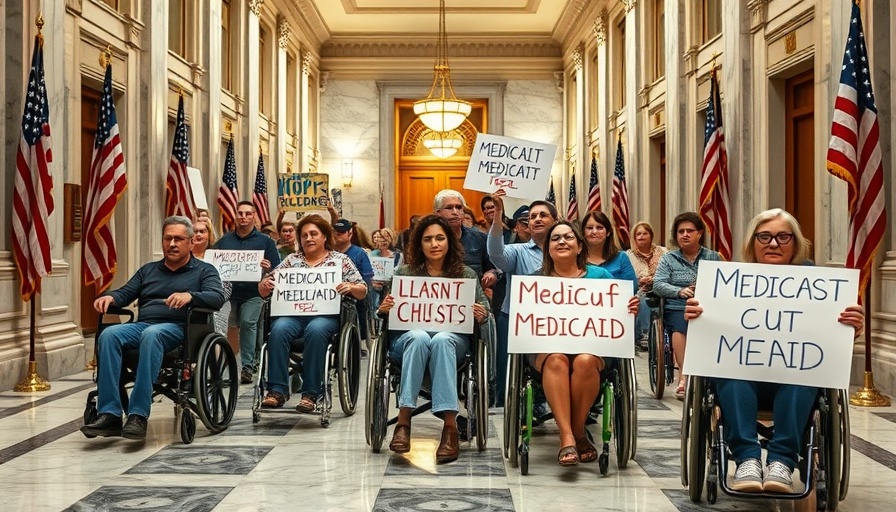
Understanding the Controversy
This week, Senator Roger Marshall of Kansas ignited a wave of backlash for his dismissive comments regarding protests against potential Medicaid cuts. Speaking to reporters, he suggested that demonstrators were “probably hired” and dismissed their concerns as a temporary “sugar high” from pandemic-era spending, revealing a lack of understanding of the gravity of healthcare for many Americans. Such statements express a growing disconnect between lawmakers and citizens coping with the realities of healthcare access and the consequences of political decisions.
What’s at Stake with Medicaid Cuts?
Medicaid serves as a vital lifeline for millions of Americans, particularly those from low-income backgrounds, the disabled, and elderly populations. Any potential cuts threaten to strip essential benefits and create barriers to healthcare access. Activist Julie Farrar from disability rights organization ADAPT said that for many, these protests were not merely about policy but a matter of survival. As Marshall aims for a budget reconciliation bill prioritizing cost efficiency, those impacted demand that their voices and experiences be considered seriously in these discussions.
The Role of Grassroots Activism
Marshall’s claims that protestors are “paid troublemakers” reflect a broader trend where grassroots movements are often delegitimized by political figures. This could be seen as an attempt to undermine genuine concerns raised by everyday citizens. It's important to recognize the vital role grassroots activism plays in advocating for those whose voices might be silenced in congressional dialogues. By framing protests as hired performances, elected officials risk alienating constituents who are fighting for their health and livelihood.
A Broader Disconnect
Marshall’s remarks have galvanized criticism, raising important questions about empathy and representation in politics. Observers note that he may not grasp the complexity of life without solid healthcare support. Public sentiments on social media highlight frustrations: many see lawmakers' disconnection from the struggles faced by individuals reliant on Medicaid. For a senator whose net worth is estimated at $9 million, the impact of Medicaid cuts may seem abstract, while for many Americans, it could mean access to necessary health services.
The Path Forward
As discussions around healthcare continue, advocates push for more compassionate inclusivity in policymaking. The ongoing protests surrounding these cuts manifest a collective yearning for understanding and meaningful representation in discussions that directly affect their lives. By engaging in dialogue and acknowledging citizen concerns, lawmakers can move toward solutions that truly address the needs of their constituents.
Conclusion: The Road to Compassionate Policy
The protests against Medicaid cuts express the urgent need for a return to a politics centered around human experiences rather than monetary calculations alone. As these events unfold, it is crucial for citizens to remain engaged and vocal about their needs. Understanding how policy decisions intertwine with the real lives of Americans fosters accountability and empathy in governance.
 Add Row
Add Row  Add
Add 




Write A Comment